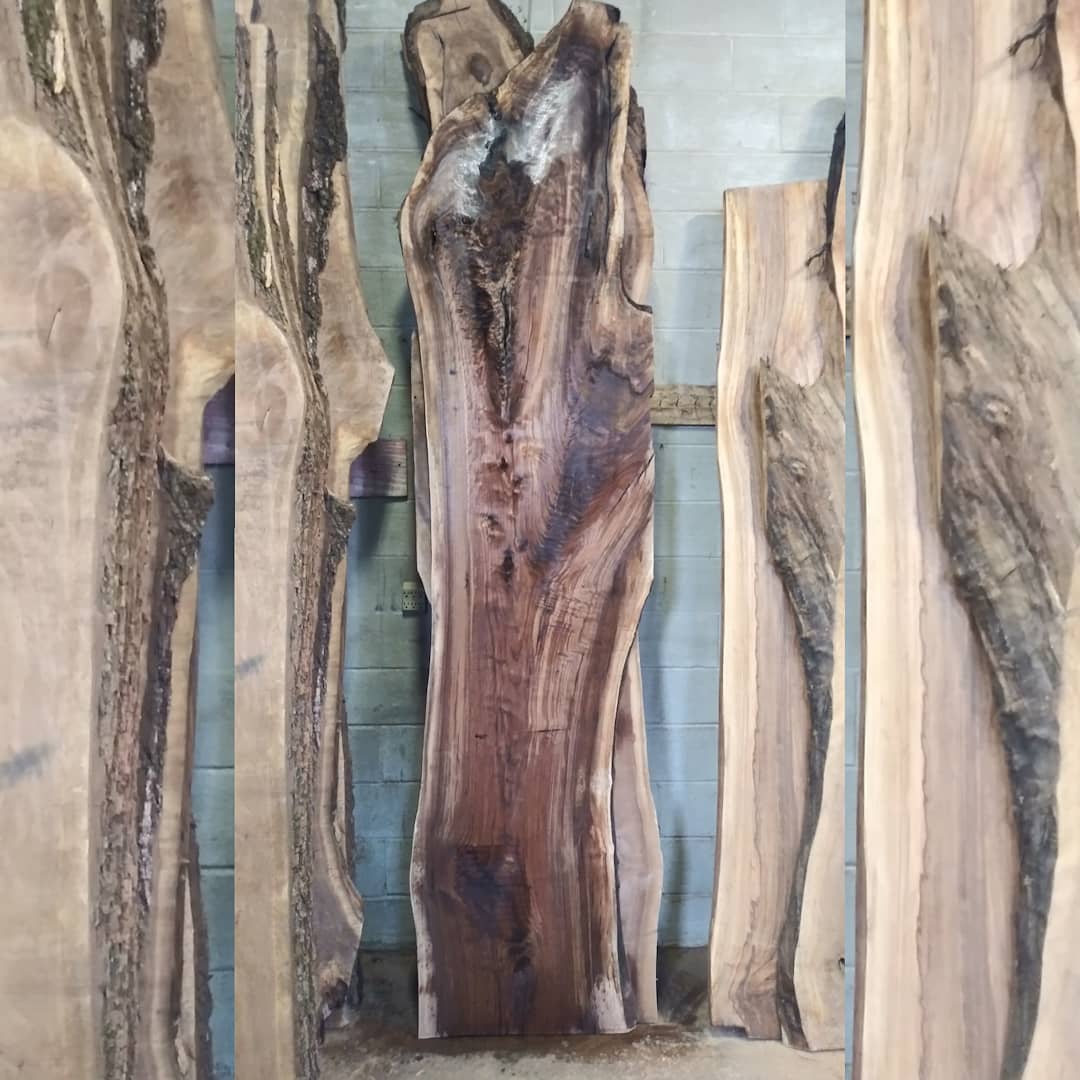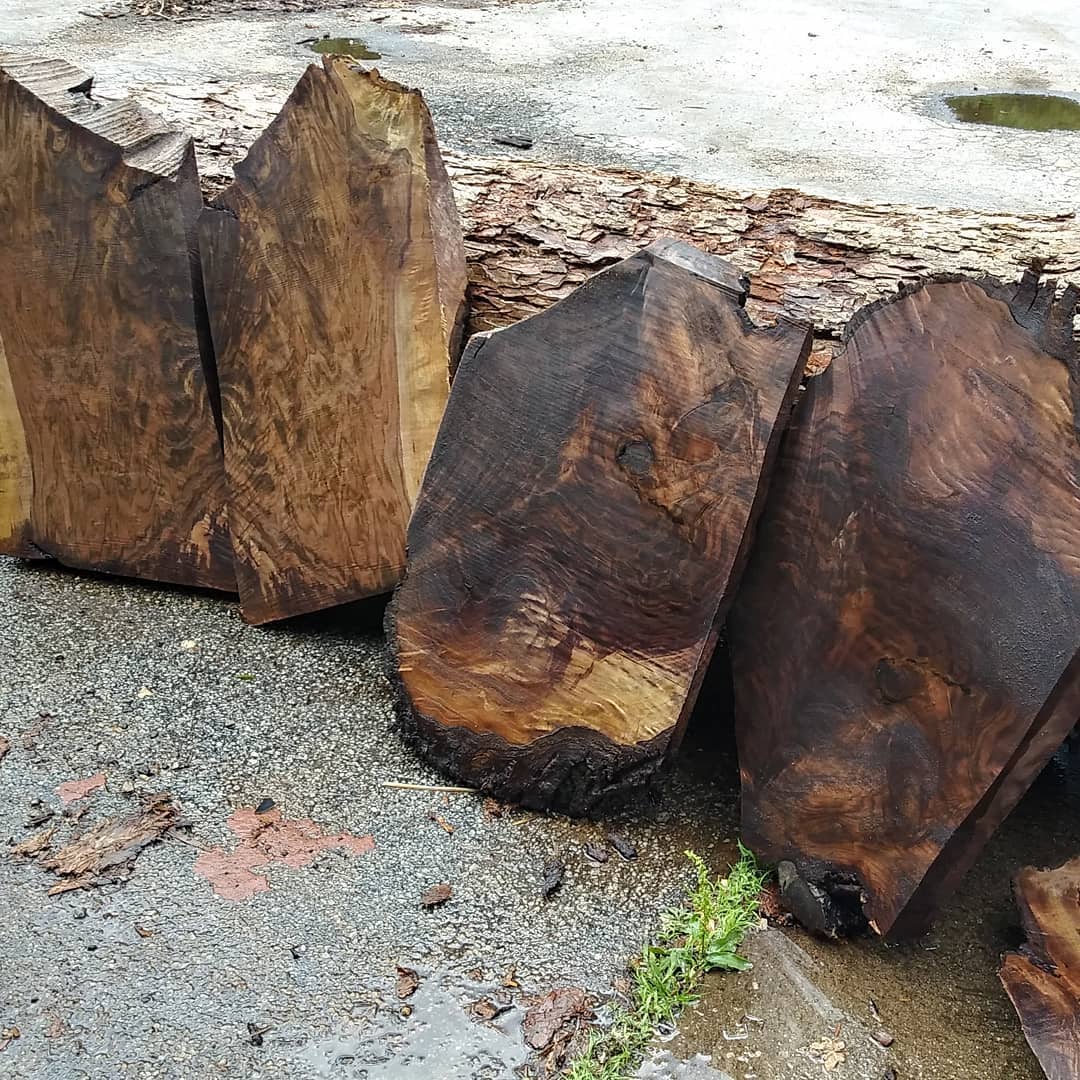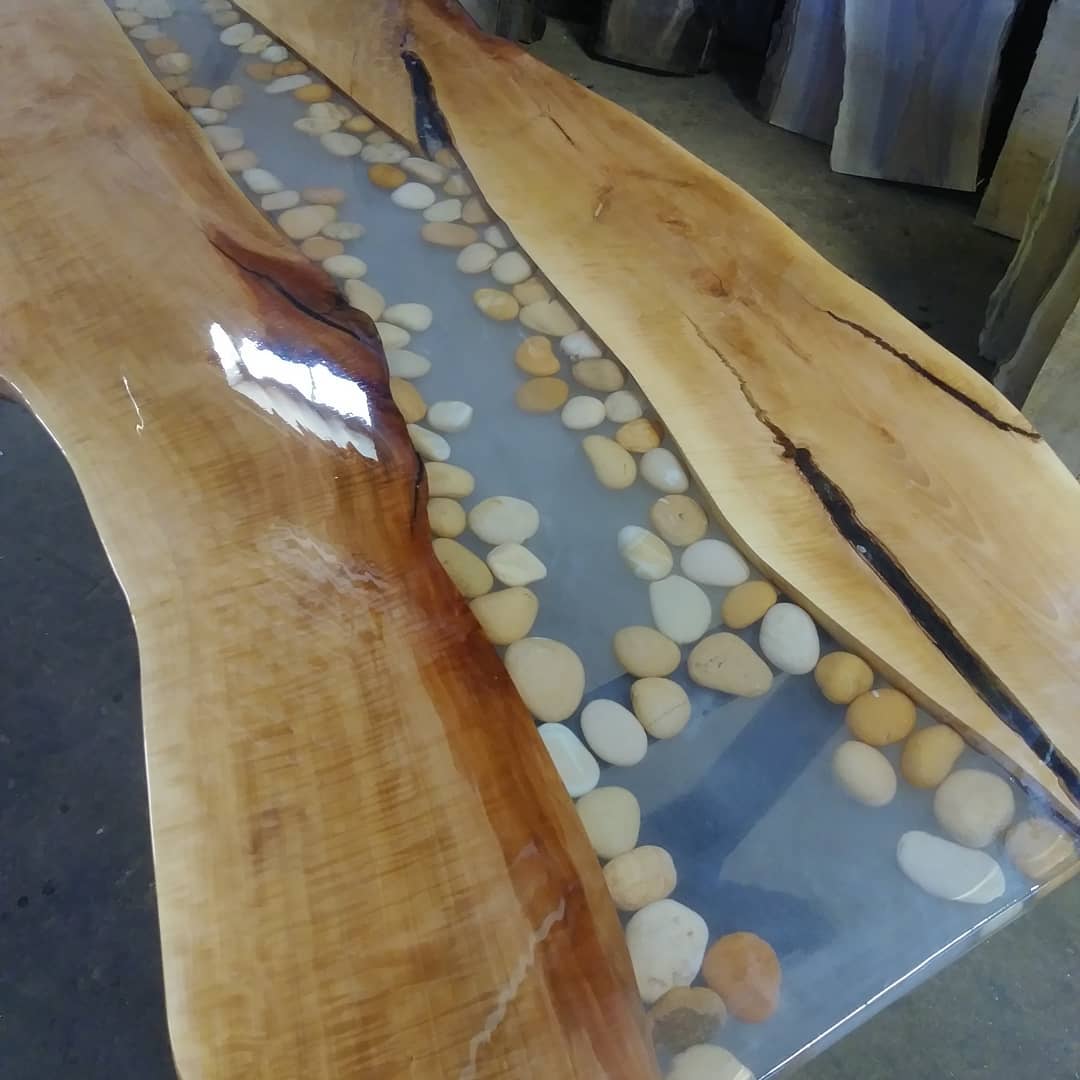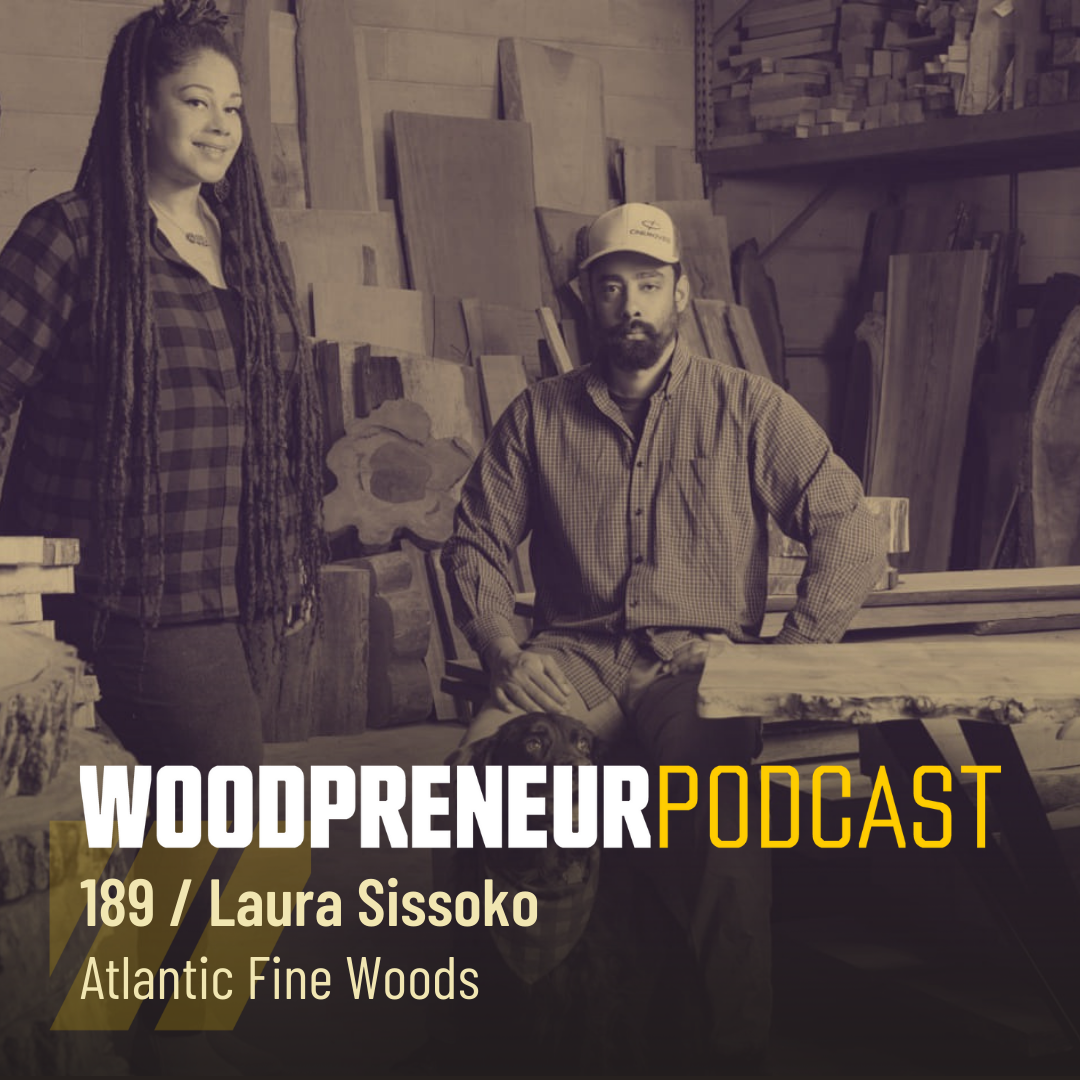Laura Sissoko: Atlantic Fine Woods
Welcome back to a brand new episode of the Woodpreneur Podcast! Today, your host Steve Larosiliere sits down with Laura Sissoko from Atlantic Fine Woods. Laura’s story and the story of Atlantic Fine Woods began about ten years ago.
“I studied architecture in school, and I was interested in furniture design. And I had been working for a furniture designer in New York City for a while. My father saw an opportunity when Gibson Guitars was getting raided for having allegedly illegally sourced ebony and other exotic woods.
The country where I was born, the Central African Republic, had recently started a managed forest system with neighboring countries, The Congo and Cameroon. So we knew that we had a single chain of custody source for exotic woods, and that’s how we started.
Several years into it, there was a coup d’etat in the Central African Republic, and we were no longer able to export ethically. That’s when we had to switch to domestic wood, and that’s when we also started hearing about urban lumber. So that was our next step, and it’s thriving and doing great.”
- Laura Sissoko

Adapting and Changing
From the time they started the company to now, a lot has changed. Not only have they swapped from importing exotic woods to harvesting domestic, but Atlantic Fine Woods has also been doing a lot more furniture projects over the last five years.
Since they are located in the urban center of Atlanta, they recognize that not everybody has the knowledge, tools, or space to make their own tables. So they have been doing a lot of custom work for their client base.
Currently, their main products are kiln-dried live edge slabs that they sell to other woodworkers and DIYers. Laura notes that the first few years of selling exotic woods were relatively slow since it was a new business. However, when they pivoted the company to selling domestic wood, they could use it as a marketing opportunity and go to all of the local papers and design blogs.

Knowing their Audience
As a result of pivoting their business model, Laura has found that their client base is far more interested in urban lumber than exotics. Additionally, Atlantic Fine Woods has managed to become the primary destination for people within the central area of Atlanta.
“Atlanta has this ring highway around it, and it’s considered inside the perimeter and outside the perimeter are the kinds of cultures of Atlanta. For the most part, our customers are inside the perimeter, sort of city people.
I believe outside of the perimeter; there is access to sawmills and that kind of thing if you go maybe an hour and a half, two hours out of town. So we’re mostly the city people, and our custom business has been growing beautifully.
What we’d like to do is open a retail store with tops and do work with a blacksmith. So we’d like to have people just kind of choose their tops and bases and do like that in a beautiful retail setting that is not a dusty warehouse.”
- Laura Sissoko

Steve’s Advice Corner
“We’re in a space of transition right now. So we’re trying to open a new furniture store, which is separate but similar to our shop. Our shop is on the edge of the city, and we want the new store to be very much in the center of the city and Midtown. It’s going to be a grab for a different clientele and a different price point.”
- Laura Sissoko
Laura and Atlantic Fine Woods already have a location in mind in a specific area. There is a local mall-like market in a hipster neighborhood that they want to get established in. However, since Laura’s brother and business partner is currently recovering from a major surgery, she plans to take on the sawmilling side of the business alongside her existing responsibilities. Steve proposes a solution.
“I have two thoughts. One is to find somebody so that your brother can train them on the sawmill so that it’s not you. You’re an important part of the business, and you’re the most important part of the business at the moment. And you should know how to do it, but somebody else should do it. Just because you can do it doesn’t mean that you should do it.
You can get an apprentice and pay them $20 an hour. Do paid training at a lower fixed cost. So like this, “I’m going to train you to be a sawyer, you’re going to get 500 bucks or 1000 bucks. Upon successful completion, you’re going to be our sawyer. You’re going to work 20 hours a week at $20 an hour.” That’s what it is; find somebody and do that.
Because it’s a different mindset when you’re milling, and then switching to customers, and then switching to marketing. It’s too much. You have to operate in a zone of creativity, whereas being a sawyer is a technical trade, but it uses a different part of your brain. And so your context switching is going to be very hard, and it’s going to be hard for you to continue to grow the business. So offset that completely.”
- Steve Larosiliere
Website: https://www.atlanticfinewoods.com
Instagram: @atlanticfinewoods

